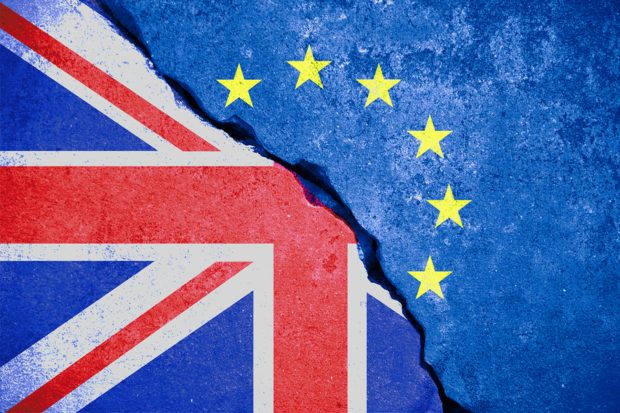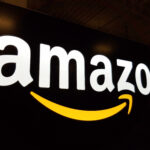Nigel Farage’s newly-created Brexit Party is threatening to wipe out Theresa May’s Conservatives in the European Parliament elections. One reason behind the Farage surge in the polls may be his dominance of social media, the crucial election cyber war.
With a series of polished and professionally produced videos – rapidly cutting from packed rallies with the party’s diverse candidates to a strident Farage accompanied by thumping music – the single-issue movement is outspending its rivals online and winning the contest for voters’ attention.
“They’re throwing everything they’ve got at this opportunity,” said Simon Usherwood, deputy director of U.K. in a Changing Europe, an academic group that researches the relationship between Britain and the EU. “They’ve got a very slick set of adverts, strong branding and this is their moment to break into the political scene.”
With a presidential-like focus on Farage, the party is pushing for a no-deal split from the EU, claiming that the delay to Brexit so far is a betrayal of the will of the people. The group has gone from nowhere to poll in first place ahead of the European elections on May 23.
For May’s Tories, the threat is huge. The fear among Conservatives is that Farage will go on from success in the EU elections to strip votes away from them in the next general election, potentially allowing Labour to take power nationally.
Digital campaigning is now a vital mainstream part of political election strategy for all major parties. Social media advertising helped the Tories win an unexpected general election majority in 2015 and contributed to Jeremy Corbyn’s success two years later.
The Brexit Party’s use of Facebook advertising harks back to the EU referendum in 2016, when the Leave campaign made effective use of targeted messages to particular demographics at a low cost.
Ads run by the Brexit Party on Facebook since April — which include promoting their rallies, attacking rival candidates and sharing party political messages — have been seen at least 7 million times, according to data from the Facebook Ad Library and analysis by Bloomberg.
The Brexit Party’s Facebook page, created in January, has attracted 108,000 ‘likes’, more than the pro-Remain Change U.K. party, which was set up in February and has 22,000. The Tories’ and Labour’s Facebook pages, both active for 11 years, have 652,000 and 1 million ‘likes’ respectively, while the Liberal Democrats have about 192,000.
Ad spending by Farage’s party on Facebook for the last week, at 27,311 pounds, is almost four times as big as the Conservatives’ and twice as much as Labour’s. It outstrips all parties except Change U.K., which has spent 52,676 pounds in the period, according to data from Facebook.
The sudden prominence of the new party has prompted questions about the provenance of its funding. Brexit Party Chairman Richard Tice told BBC Radio on Monday that it has taken donations of 25 pounds from more than 100,000 people.
Asked repeatedly whether the party takes donations in foreign currency, he declined to reply yes or no, saying “as I understand that’s not illegal.” He said it’s “ridiculous” to say the party has unexplained funding, and that the party complies with electoral law.
Rock Star
The group has been live-streaming rallies from across the U.K. on Facebook and Twitter, garnering tens of thousands of views. Its party political broadcast has been seen 795,000 times on Twitter. By contrast, May’s Conservatives are yet to tweet or make any Facebook posts about the European elections.
“It’s rock star-type content,” said Craig Dillon, founder of Westminster Digital, a company that makes social media videos for Cabinet ministers and which has advised the Brexit Party on its digital presence. “It’s more like a band on tour than a political party.”
On Twitter, a platform more popular among Remain voters, tweets from the Brexit Party between April 29 and May 6 garnered more retweets than those of any of the pro-Remain parties, such as the Liberal Democrats or Change U.K, according to a study by the Hansard Society.
The Brexit Party didn’t respond to a request for comment.
The party is benefiting from having a well recognized leader and a simple message, the two basic ingredients of any successful political communication strategy, said Steven Barnett, professor of communications at the University of Westminster.
“Farage is a brand in his own right,” Barnett said. “It’s a wonderful case study in how to run a presidential campaign.”
–With assistance from Alex Morales.





















 Berkshire Hathaway Profit Falls; Insurance Income Lower for GEICO, Other Ops
Berkshire Hathaway Profit Falls; Insurance Income Lower for GEICO, Other Ops  How State Farm, USAA Boost Customer Retention: Historic Dividends
How State Farm, USAA Boost Customer Retention: Historic Dividends  Hackers Used AI to Breach 600 Firewalls in Weeks, Amazon Says
Hackers Used AI to Breach 600 Firewalls in Weeks, Amazon Says  State Farm Mutual to Pay $5B Dividend to Auto Insurance Customers
State Farm Mutual to Pay $5B Dividend to Auto Insurance Customers 








